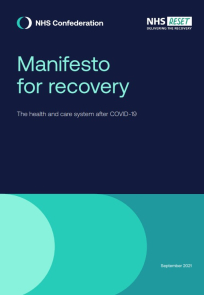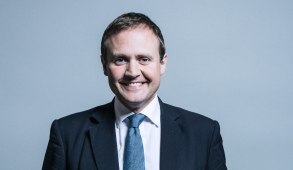Covid-19 reader: 1 October
Deprivation linked to long waits
The King’s Fund, blog
 Analysis by The King’s Fund has shown a clear relationship between long waiting times and deprivation. Its stark conclusion is that those living in the most deprived areas are nearly twice as likely to wait more than a year for treatment compared to those living in the least deprived areas.
Analysis by The King’s Fund has shown a clear relationship between long waiting times and deprivation. Its stark conclusion is that those living in the most deprived areas are nearly twice as likely to wait more than a year for treatment compared to those living in the least deprived areas.
While the national waiting list increased by 42%, between April 2020 and July 2021, this varied from 10% in some clinical commissioning group areas to around 90% in others. Analysing the increases by deprivation quintile showed that increases ranged from 36% in the least deprived areas to more than 55% in the most deprived.
The blog authors, policy adviser Jonathon Holmes and analyst Danielle Jefferies, point out that a growing waiting list isn’t necessarily a bad thing – showing that referral routes are working. However, they were more concerned with their findings on the longest waiters. Some 4% of people currently waiting for treatment in the least deprived areas had been waiting for more than a year. But in the most deprived areas this rose to 7.3% – meaning people in the most deprived areas were 1.8 times more likely to experience a wait of more than a year.
In identifying why this might be the case, the authors said that higher Covid infection and mortality rates in these areas were likely to have disrupted services more. They were often also starting from a lower baseline of capacity and typically had populations with greater healthcare needs.
However, there were some areas in the most deprived quintile that had seen waiting lists grow, but which had been able to contain the number waiting more than a year. The blog suggests that there may be transferable learning from these areas – with some areas highlighting prioritisation of population groups with greatest levels of need.
In tackling waiting lists, the authors said that central government support will be important. ‘[But] so too is giving local health systems the flexibility to work through the backlog in a way that is tailored to meet the needs and tackle the inequalities experienced in the populations they serve,’ they added.
NHS Providers deputy chief executive Saffron Cordery said the analysis was ‘deeply worrying’. ‘It is vital that in addressing the care backlog, due emphasis is given to deal with disparities in access and outcomes for disadvantaged people living in the most deprived areas,’ she said. ‘Through their work in local systems, trusts are taking on a growing role in addressing these inequalities, but they will need support to do this, recognising that it could impact on broader efforts to reduce the size of waiting lists.’
Getting worse before it gets better
NHS Confederation, report
The NHS Confederation also had its mind on waiting lists as it issued a Manifesto for recovery. The waiting list currently includes 5.6 million people, but there is a further hidden waiting list of more than 7 million – people, who would have been expected to, but did not come forward for care during the pandemic. The confederation said a key focus will be to find the missing 7 million, many of whom will be from deprived and marginalised groups.
A new approach will be needed based on targeting those most in need. ‘There are good reasons to believe that the current approach, whereby patients are treated in the order they present for care, exacerbates inequalities, worsens health outcomes and perpetuates the inverse care law,’ the report said. ‘If the NHS is to restore services inclusively, radical action is now needed, and not solely responding to demand for care from those who come forward.’
There is a mixed picture across the country, but the report highlighted ‘statistically significant’ evidence that:
- admissions are increasing for specialities such as trauma and orthopaedics and ear, nose and throat associated with areas of less deprivation
- waiting list numbers are increasing in areas of greater deprivation, especially in neurology, general surgery and dermatology
- ·overall levels of waiting per head of population are associated with areas of greater deprivation.
Nearly 60% of healthcare leaders, surveyed to support the report, said that health inequalities had widened as a result of the pandemic. The report highlights research showing mortality rates due to Covid-19 in the most deprived areas at more than double the rate in the least deprived. And a separate study found that 34% of nearly 5,000 critically ill patients in April 2020 were from a black and minority ethnic background. This compared with 11.6% of patients with viral pneumonia between 2017-19.
The survey found that all organisations are taking practical steps to address inequalities, many based around population health management approaches. They are analysing data by deprivation, ethnicity and presence of learning disabilities, and boosting access to mental health support.
Healthcare leaders called for better alignment of incentives, more funding and more system working to help them reduce inequalities. And 95% agreed that success in tackling health inequalities should be a key measure when reviewing the performance of NHS leaders and their organisations.
A separate briefing from the Confederation – Building back inclusively – identified a package of measures that are now needed. These include: the ‘politically uncomfortable’ step of proactively growing the waiting list; reforming constitutional standards; promoting active waiting; and developing tools to scan for early symptoms of life-threatening conditions as part of routine interactions with patients.
More power to WHO
Commons Foreign Affairs Committee, report
It is only a matter of time before the next pandemic. So says the Commons Foreign Affairs Committee this week in its report Global health, global Britain. The report is the culmination of the committee’s inquiry on global health security, launched after prime minister Boris Johnson promised a new global approach to health security in September last year. The report said the UK could take a leadership role in building better international co-operation on global health, drawing on its strengths as a donor, a convening power, and in scientific research and development. ‘But it will only be able to do so if it takes a proactive decision to prioritise this work,’ it said.
The committee praised the World Health Organization (WHO), but said it had fallen short in failing to challenge the Chinese government on the pandemic outbreak and had been slow to declare a ‘public health emergency of international concern’. It lacked adequate funds – 80% of its money comes from voluntary donations – power and independence.
‘There is little doubt that the WHO has done vital work, with limited powers, in challenging, unprecedented circumstances,’ said committee chair Tom Tugendhat (pictured). ‘However, it is undeniable that the WHO is in need of serious reform. It is critical to make sure that the independence of the WHO cannot be undermined.’
The report recommended the WHO should be given greater powers to independently investigate outbreaks, an increase in member state fees, and greater independence for its leadership. The committee also called on the UK government to build ‘structured permanent co-operation’ with the European Centre for Disease Prevention and Control.
The committee acknowledged the achievements on vaccination, which have seen all UK adults offered full immunisation and 41% of the global population given at least one dose. It said the UK had made an important contribution to this, with the UK-backed AstraZeneca vaccine responsible for the majority of Covax vaccinations in lower-income countries.
However, these achievements are undermined by the ‘failure to ensure anything close to global equity in access’. It was time for democratic governments to turn their attention overseas, with rapid global access morally right and in the UK’s interest. The UK’s commitment to donate 100 million vaccines in the year to June 2022 was welcome, but fell short of what is needed.
The committee called the government to increase the speed and number of vaccines it donates through the Covax scheme. And the UK should ‘ensure that any bilateral donations are planned and timed to give real, sustainable and predictable support to other countries’ vaccination campaigns, rather than transferring small quantities that do more for the image of the donor than for the recipient’.
It also suggested that the production of the AstraZeneca vaccine by India’s Serum Institute offered a good model for technology transfer to build the capacity to produce vaccines in a wider range of countries. While many national leaders have backed temporary waivers on intellectual property for Covid-19 vaccines, the committee said that the government should ‘pursue a wide range of means to bring about greater manufacturing in lower income countries, including through expanded technology transfer schemes’.
Related content
We are excited to bring you a fun packed Eastern Branch Conference in 2025 over three days.
This event is for those that will benefit from an overview of costing in the NHS or those new to costing and will cover why we cost and the processes.